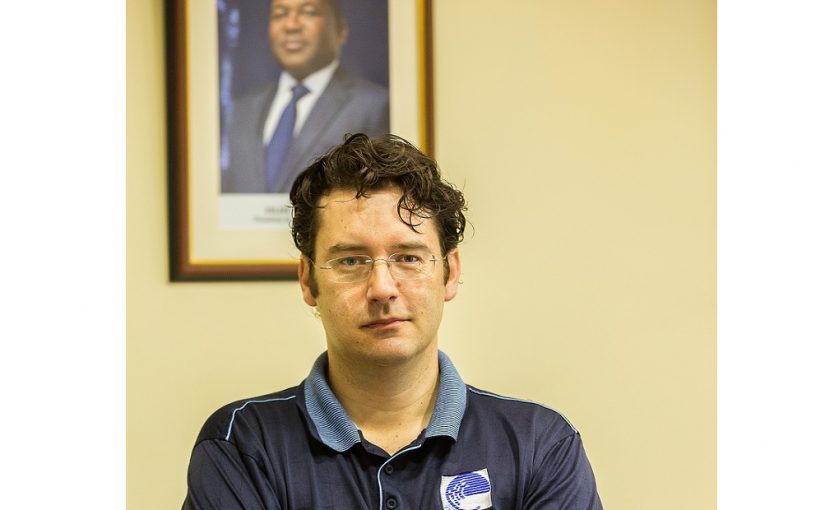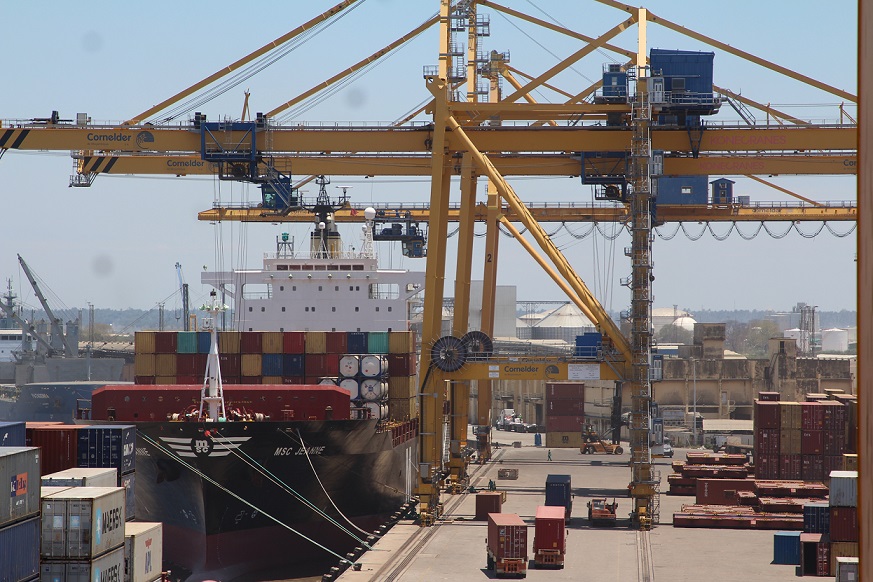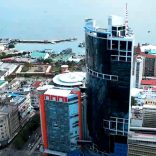African central banks, including Mozambique, to join emerging-market peers easing rates - Bloomberg
Port of Beira is open for business – and building resilience against Covid-19 | Exclusive interview with Jan de Vries | Mozambique

Jan de Vries, the executive managing director of Cornelder Mozambique, recently gave Club of Mozambique the opportunity for an exclusive interview. Mr de Vries discusses how the Beira Corridor is becoming ever more important for big cities around Sub-Saharan Africa, the effects of Coronavirus on Mozambique’s trade, and the importance of ports to ensure safety and healthy living throughout these troubling times.
What are the current volumes from Beira Port? What has been the trend over the last years?
“Last year we [Cornelder Mozambique] handled over 250.000TEU of containerised cargo and over 2 million tons of general cargo through the port of Beira. This is more than a doubling of the volumes handled less than 10 years ago due to [the] Beira Corridor attracting more cargo from larger ports such as Durban and Dar es Salaam.”
Do you see a reduction in the flow of cargo because of the Covid 19? What impact do you think Covid 19 will have on your business, Beira and the Beira corridor? What is in your view the outlook?
“We had forecasted a healthy growth this year after the problems of Cyclone Idai last year, but now we will have to adjust our expectations. Although the first three months of the year the impact was somewhat limited and only slight reductions in volumes could be seen, we expect a stronger decline from April onwards.
The global economy is coming to a temporary standstill, with many of the leading economies in full or partial lock down. This is upsetting all international markets for goods that are exported from our hinterland as well making importation of goods by the national and regional importers more difficult.
Furthermore, since the end of March and beginning of April most countries in Southern Africa have implemented lock downs which either halted or severely restricted the productive sectors of the economies and have created challenges for cross border trade. Many mines have either reduced production or halted completely and agricultural campaigns have been postponed. For example, the important Tobacco export process is delayed as both Malawi and Zimbabwe have postponed the opening of the auction floors to avoid conglomerations. Of course, we have some new customers who are currently not able to use their traditional ports such as Durban, but this is just a few cases that in no way compensate for the overall drop in market volumes.
Although we know that the volumes of cargo handled on the Corridor will be strongly affected, it is at this stage impossible to make any solid prediction. Nobody knows how long the fight against Covid 19 will take and the best economists in the world are not able to agree on how long economic recovery will take once restrictions are lifted.
We are sure, however, that no matter the economic conditions, it is essential that Mozambican Ports remain operational as they perform a crucial function in the supply chain for essential goods and are a catalyst for economic recovery. Our focus therefore has been to make the Port as well as the Corridor more resilient against Covid 19 by aggressively implementing recommendations from the government and from the WHO.”
How has Cornelder prepared itself for when the coronavirus peaks in Mozambique?
“We have already in March installed over 30 hand washing stations in and around the Port and oblige all port users to wash their hands with water and soap before entering and exiting as well as at regular intervals during operations. We have moved about 50% of our staff to new offices in order to comply with social distancing guidelines for those functions that cannot be performed remotely and are finalising the digitalization of our main internal and external documentation and business processes through a newly developed platform.

We are also trying to make our contribution on the areas surrounding the port. We have for example procured 60 sewing machines and donated them together with materials and other support to various social communities specialised in sewing to produce thousands of face masks. These are being distributed to sectors of the formal and informal economy in Beira with a large risk of propagation such as market vendors and bus drivers. Similarly, we are assisting the Provincial Health services with donation of materials and equipment as well as refurbishment of installations for attending a potential surge of Covid 19 cases.
We hope that more companies and individuals will follow and do what is in their power to contribute to the fight against Covid 19 in Mozambique and in the region. We are optimistic as our efforts on the Beira Corridor Initiative show that different companies can come together and fight for a common goal. In the Beira Corridor Initiative, many companies come together to organize events with private and governmental stakeholders in the hinterland that promote the Corridor and provide a platform for exchange of information with the intention of improving the corridor. That similar spirit of coordination can now help with sharing best information, best practices and social responsibility initiatives with regards to Covid 19 prevention.
Once the Covid 19 threat has reduced, we will once more focus our attention on turning the movement into a formal Association with the objective of promoting and improving the trade and logistics on the Beira Corridor.”
By Noah Frey












Leave a Reply
Be the First to Comment!
You must be logged in to post a comment.
You must be logged in to post a comment.